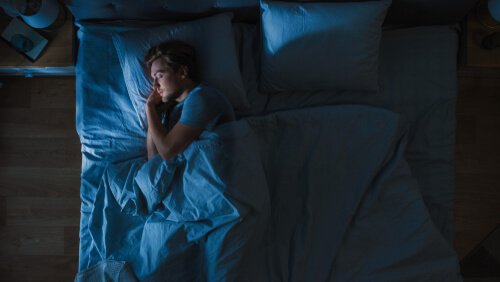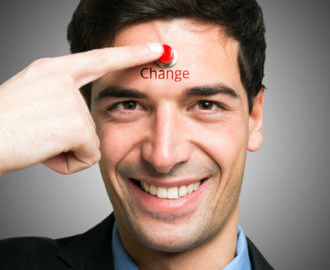
October 25, 2024
About 50 to 70 million people suffer from some form of sleep disorder in the United States. Sleep deprivation is more than just a nuisance. It’s a serious problem that can affect your well-being in every aspect—mentally, emotionally, and physically. With almost one-third of Americans getting less than six hours of sleep per night, we’ve become a society that relies on caffeine and sleeping pills to address our sleep troubles. However, these substances are simply crutches and they don’t get to the root of the issue. Hypnosis, on the other hand, offers a real solution for addressing sleep issues, such as insomnia, at their core.
Today, we’re going to discuss the benefits of using hypnosis for sleep. This non-invasive therapy can deliver real results so you can start getting the restful sleep you need and deserve. Before we get into the benefits of hypnosis for sleep, let’s quickly review some basics.
Why is sleep important?
Sleep is an essential function that allows your body and mind to rest, recharge, and repair so that you can optimally function. An insufficient amount of sleep can have serious potential repercussions including:
- Memory issues
- Trouble concentrating
- Physical health problems like high blood pressure, obesity, weight gain, type 2 diabetes, heart disease, and stroke
- Mental health problems like anxiety and depression
- Increased accidents and injuries
What is hypnosis?
Hypnosis is a trance-like state of mind during which you experience deep relaxation, focused attention, and greater openness to suggestion. Hypnosis is a way to gain greater access to your subconscious mind, which largely influences your behaviors, habits, and motivations and empowers you.
A clinical hypnotherapist guides you into a relaxed state, known as a trance, using a number of techniques, such as deep breathing and visualization. In this relaxed state, your thoughts slow down and you become more focused and open to suggestions. Once in a trance, the hypnotherapist guides you through a series of exercises and makes suggestions to help you get in tune with your goal—in this case, relieving insomnia.
You’ve probably seen hypnosis depicted in movies as some magical process where a person performs seemingly involuntary actions. In reality, clinical hypnosis is nothing like the form of entertainment depicted in the media. Instead, it focuses on helping you “rewire” your thinking and behavior patterns to instigate positive changes in your life.

How does hypnosis help with sleep?
Hypnosis is frequently used to alter behaviors and reactions that could be contributing to a chronic health problem, such as insomnia and other sleep disorders. It’s important to note that insomnia can be caused by an underlying health issue, so be sure to get checked out by your doctor if you’re experiencing persistent sleep problems. Even if your sleeping issues are caused by an underlying health condition, however, hypnosis can still help improve your sleep.
Oftentimes, sleep disorders aren’t caused by an underlying health condition, but rather are the result of an overactive mind that won’t stop chattering. At night, when you’re trying to go to sleep, you don’t have your usual distractions, such as other people, cell phones, and TVs, to focus on. When these distractions fade away, your focus naturally turns to your mind, which is likely running a mile a minute with worries, to-do lists, and anxieties.
Through hypnosis, suggestions given while in a trance can support changes in diet, exercise routines, and most importantly, patterns of anxiety and thought. You learn to calm your body and mind, relax, and let go of thoughts and behaviors that prevent sleep. The goal is to create changes on a subconscious level that you can carry with you into your everyday life.
What are the benefits of hypnosis for sleep?
Using hypnosis for sleep offers many benefits and is a great natural alternative to traditional insomnia treatments. Some of the benefits of using hypnosis for sleep include:
- Drug-free: Pharmacological solutions are common when treating sleep disorders such as insomnia. As with any drug, these carry the risk of unpleasant side effects and dependency. Hypnosis is completely drug-free.
- Safe & gentle: Hypnosis is a non-invasive treatment method. Additionally, while in a trance, you’re always aware of your experience and in control of your behaviors. Contrary to media depictions, you are never in danger of doing anything against your will.
- Empowering: Many hypnotherapy treatments will include learning some form of self-hypnosis, which you can perform on yourself at home. This is an effective way of treating sleep issues and gives you power over your personal well-being.
- Can treat co-occurring conditions: Oftentimes, other conditions appear alongside insomnia. Hypnosis can be used to treat co-occurring conditions, such as anxiety, depression, stress, weight issues, post-traumatic stress disorder (PTSD), migraines, and irritable bowel syndrome.
Is hypnosis effective for sleep disorders?
While using hypnosis for sleep almost seems too good to be true, research shows that hypnosis is indeed an effective treatment for improving sleep. Let’s look at some of the supporting research:
- A 2016 randomized controlled trial examined the effectiveness of sleep-directed hypnosis as a complement to psychotherapy for PTSD. It found that participants who received hypnosis treatment showed significant improvement in sleep quality over the control group.
- A 2008 review showed that people with acute and chronic insomnia responded to hypnosis. It also demonstrated that hypnosis was successful in treating parasomnias, such as bedwetting, head and body rocking, and sleepwalking.
- A 2014 study showed that hypnosis positively impacts deep sleep, which is essential to restoring energy, repairing bodily tissues, and strengthening the immune system. This is essential during Covid-19.
- Most recently, a 2018 systematic review showed that almost 60 percent of the 139 studies reviewed demonstrated that hypnosis is beneficial in treating sleep problems.
This is only a small sampling of the available research. As you can see, there is no shortage of studies showing promising results regarding hypnosis for sleep.

Start your journey toward improved sleep
Interested in trying hypnosis for sleep? A good place to start is by typing “hypnosis near me” into your search engine. When browsing through the results, search for a certified hypnotherapist, such as Carla Chalah, who has considerable experience in the field.
Carla Chalah, hypnotherapist and integrative life coach at Hemisphere Hypnotherapy and owner of EveryBody in Mind Wellness Center in Sudbury, Massachusetts, works in-person, as well as remotely, with clients all over the world.
Restful sleep is your birthright and is fully attainable once you address the root subconscious cause that is perpetuating your sleep issues. Don’t spend any more nights tossing and turning and watching the hours go by on your clock. Reach out today to get started on your journey to deep, restorative sleep and improved wellness.

References:
https://pubmed.ncbi.nlm.nih.gov/22534760/
https://www.webmd.com/sleep-disorders/features/10-results-sleep-loss
https://psycnet.apa.org/doiLanding?doi=10.1037%2Fccp0000059
https://pubmed.ncbi.nlm.nih.gov/18797562/

